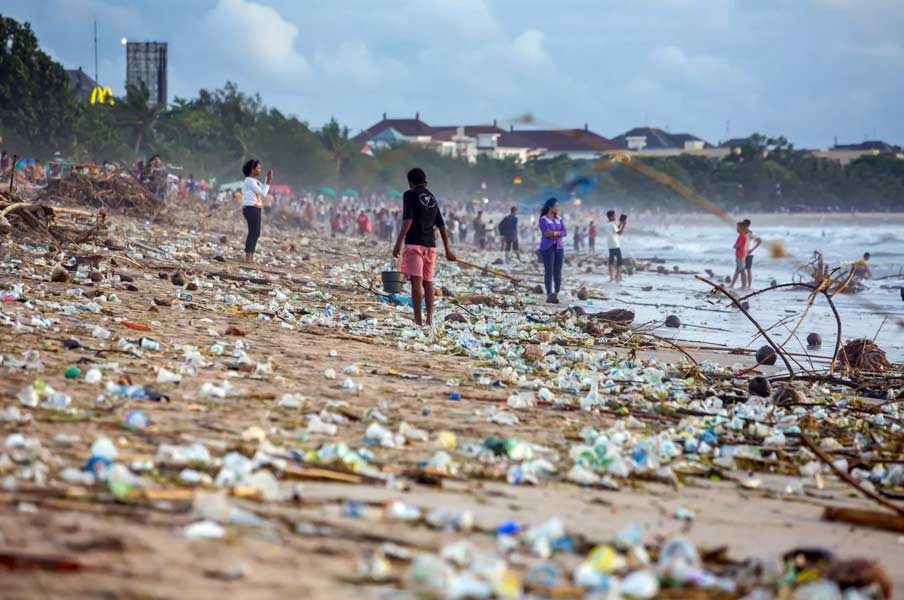The 2022 United Nations Environment Assembly gathered leaders from 175 countries in Nairobi, Kenya, to sign the first-ever global pollution treaty. This is the largest environmental treaty to be enacted since the 2015 Paris Climate Accord.
Leaders and officials agreed to bring an end to the scourge of plastic pollution, which is arguably one of the world’s largest pollution concerns—the treaty intends to address the overarching life cycle of plastic, from production and design to disposal.
The boom in plastic production started in the 1950s and has not ceased. What has largely evolved as an unregulated sector in terms of waste and pollution is now being criticized. Scientists and experts have long warned of the consequences of plastic pollution, which appears to be finally being taken seriously through this accord.
Plastics are slow to decay, expensive and tricky to recycle, and are known to cause human health issues due to the compound BPA, or bisphenol A, which many plastic materials contain. This is especially concerning as plastics break down into smaller pieces, known as microplastics, and affect waterways.
Nations are now beginning work to implement mitigation efforts by the end of 2024, with a goal of extending greater protections against plastic pollution to the world’s oceans, rivers, and landscapes.
Talks of implementation measures may look like caps on virgin plastic, which is derived from fossil fuels and is scheduled to double in production by 2040 without regulations. Others include the phasing out of single-use plastic items, which make up a large percentage of all plastic waste.
Threats of plastic pollution include microplastic pollution, harm to wildlife, and damage to marine and terrestrial environments. Inger Andersen, executive director of the U.N. The Environment Program, described this agreement as “a triumph by planet earth over single-use plastics.”
We will learn more about the implementation process expected to be reached in 2024 as nations work together on solutions.
Like what we have to say? Sign up to subscribe to email alerts and you’ll never miss a post.










